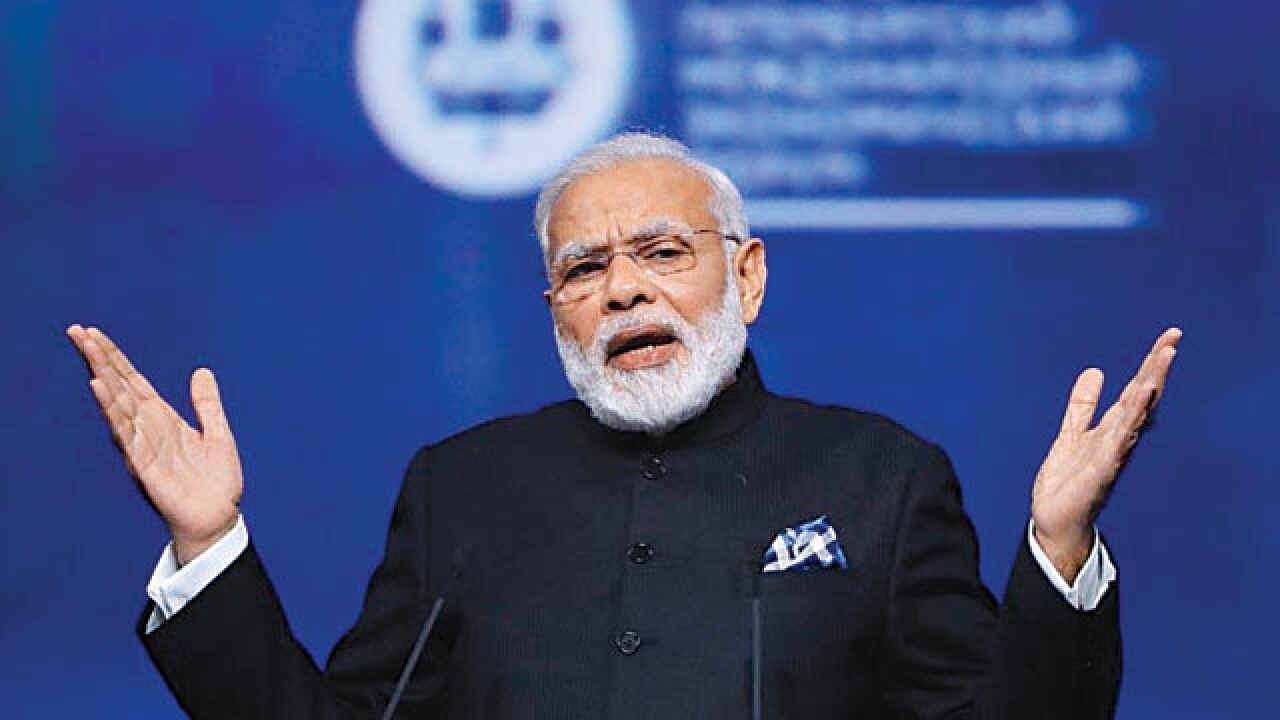
Prime Minister Narendra Modi was in Europe last week but it was his visit to Russia that attracted a lot of attention. Indo-Russian ties are historical and have stood the test of time. The two were close allies during the Cold War but even the structural changes in the international system after the demise of the Soviet Union failed to weaken the Delhi-Moscow bond. For most Indians, Russia has been a time-tested friend, one that stood by India when no one else was ready to. This historical memory managed to cushion the challenges that confronted this relationship since the early 1990s. As a consequence, barring a fleeting hiccup during Boris Yeltsin’s term as Russia’s President, New Delhi and Moscow have been extraordinarily successful in nurturing a friction-free relationship that harks back to the Soviet era.
But recent changes in Russian foreign policy posture have caused significant consternation in India. Moscow is getting closer to China and Pakistan — two of India’s most significant foreign policy challenges. At a time when Sino-Indian relations have nosedived with China’s fulsome embrace of Pakistan and its repeated attempts to scuttle India’s global aspirations, Sino-Russian relations are going strong, riding on a pliant Russia and an aggressive China intent on challenging global norms.
But it is Russia’s gravitation towards Pakistan which is shifting discourse on Russia in India. Moscow and Islamabad held their first joint military exercise in September 2016 and their first bilateral consultation on regional issues in December. Russia lifted an arms embargo against Pakistan in 2014 and will send four Mi-35M attack helicopters this year. And the China-Pakistan Economic Corridor linking Xinjiang to the Pakistani port of Gwadar could be merged with the Russia-backed Eurasian Economic Union.
This shift in the Russian stance is also evident in the role that it envisions for itself in Afghanistan, coming almost four decades after the 1979 Soviet invasion of the country. Russia hosted a six-nation conference in Moscow in February on Afghanistan’s future, with participation from India, Iran, Pakistan, China and Afghanistan. This was Russia’s second initiative after the first trilateral conference in December, including only China and Pakistan.
Though Russia has since expanded its outreach, it continues to exclude the US and NATO in its efforts to emerge as a crucial player in Afghanistan and is now seeking to engage with the Taliban to tackle the Islamic State.
Modi’s recent visit to Russia should be viewed in this light as India struggles to contain the damage in its ties with Russia. His visit has ended in a number of agreements, including the general framework agreement and credit protocol for two additional nuclear reactors at Kudankulam after missing two earlier deadlines. The two countries also focused on terrorism, strongly condemning it in all its forms and manifestations in a joint declaration. In an attempt to boost flagging economic ties, the two nations are planning to set up joint ventures for manufacturing aircraft and automobiles.
The two leaders tried to put their best foot forward to celebrate 70 years of their bilateral ties and have underscored the historical nature of their friendship. But the fact remains that as India has gravitated to the West in its search for greater strategic heft, Russia has found new partners in China and Pakistan to serve its own foreign policy agenda. Defence ties, the central element of Indo-Russian partnership, are just not adequate to sustain the dynamism in the relationship. And multilateral platforms like BRICS are wilting under Chinese ascendance.
Despite Modi’s recent visit, Moscow-Delhi ties are likely to remain tumultuous in the coming years.
The author is Professor of International Relations, King’s College London, and a Distinguished Fellow at Observer Research Foundation, New Delhi